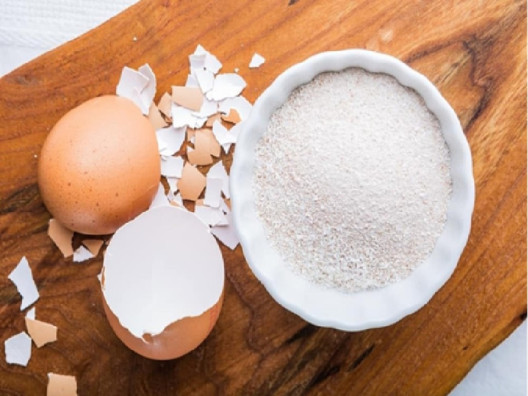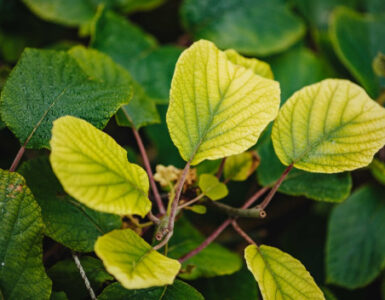Maintaining optimal pH levels is essential for plant health and growth. Alkaline soil (pH above 7) benefits certain plants.
Boosting soil alkalinity helps many plants grow better and increases yields. This article will explore natural ways to raise your soil’s pH and make it more alkaline.
Things to Consider Before Adjusting Soil pH
Before adjusting soil pH, it is crucial to understand your plants’ needs. Some plants thrive in acidic soil, while others prefer alkaline environments.
Adjusting the soil pH too much can affect the availability of nutrients. This process can harm plant growth.
Factors to consider before making changes:
- Plant type: Know the pH preferences of your plants.
- Soil type: Sandy soils respond to pH changes faster than clay soils [1].
- Current soil pH: Testing your soil’s pH is key. It helps you know what adjustments to make.
Soil pH Testing
To test your soil’s pH at home, use a pH test kit available at garden centers or a simple DIY method.
DIY Vinegar and Baking Soda Test:
First, collect soil samples from different areas of your garden. Next, place about one tablespoon of soil into a small container.
Finally, add a few drops of vinegar. If the soil fizzes, it’s alkaline.
If there’s no reaction, add a small amount of water to another sample. Next, sprinkle baking soda over it. If it fizzes, the soil is acidic.
A more precise method is to use a digital pH meter or soil pH test strips.
How to Make Soil More Alkaline Naturally
Let’s explore some natural ways to raise soil alkalinity.
However, be very careful not to overdo it. Many plants may struggle to absorb essential nutrients if the soil becomes too alkaline.
1. Wood Ashes
Wood ashes are a natural way to raise the pH of soil. They contain potassium, calcium, and magnesium, which are alkaline-forming nutrients.
To apply, first collect ashes from a clean wood-burning source. Avoid ashes from treated or painted wood [2].
Once cooled, spread a thin layer of ash, no more than 1 inch thick, across the soil surface. Work the ashes into the topsoil gently.
Since wood ash is high in calcium, potassium, and other alkaline minerals, it raises the soil’s pH. However, over-application can cause pH levels to spike too high, which could harm plants.
Therefore, gradually apply ash and regularly test your soil’s pH to monitor its effects.
2. Agricultural Lime
Agricultural lime (also called garden lime) is one of the most common and effective remedies for making soil more alkaline.
First, determine the current pH of your soil and the type of soil you are working with. This way, you will know the amount of lime to apply.
Clay soils require more lime to raise the pH than sandy soils.
Now spread the lime evenly across your soil surface using a broadcast spreader or by hand for smaller areas. Next, work the lime into the top few inches of soil using a rake or tiller for better absorption.
Lime works gradually, so it may take several months to see the full effect [3].
3. Baking Soda
Baking soda is another household item that can help raise the pH of the soil. However, it is best used in small, contained areas, such as pots or small garden beds.
Mix about one tablespoon of baking soda into one gallon of water. Stir the solution until the baking soda dissolves completely.
Then, use this mixture to water the soil around your plants, applying it evenly to the areas where you want to raise the pH.
4. Oyster Shell Lime
Oyster shell lime is made from crushed oyster shells that contain calcium and magnesium.
It’s slower-acting, which means that it slowly helps neutralize soil acidity. Therefore, it is a gentler option compared to other remedies.
Since oyster shell lime works over time, regular soil pH testing will help track progress and prevent overapplication.
5. Eggshells
Pulverized eggshells are also a great way to add calcium to the soil and raise pH over time.
To use, start by collecting and thoroughly cleaning the shells to remove any residue.
Once dry, crush the eggshells into a fine powder or small pieces. The finer the texture, the faster they will break down in the soil.
Next, sprinkle the pulverized eggshells evenly around the base of your plants, or mix them directly into the top layer of soil.
Powdered eggshells increase soil pH over time as they decompose. They are a gentle, natural choice for raising alkalinity.
This home remedy is also best for long-term pH adjustment. Therefore, it is essential to regularly monitor the soil’s pH over time to ensure it reaches the desired levels.
6. Bone Meal
Bone meal also helps to raise soil pH slightly, making it excellent for flowering plants and root crops.
To apply, sprinkle it evenly across the soil surface or mix it into the soil at the time of planting.
However, be sure to follow the recommended dosage on the packaging. Also, periodically monitor your soil’s pH to assess the effects and avoid overapplication.
7. Dolomitic Lime
This product contains a higher magnesium content than agricultural lime. It’s an excellent choice for soils that are both acidic and deficient in magnesium.
To use, begin by determining your soil’s pH and magnesium levels. Next, spread the lime evenly across your soil surface using a broadcast spreader for larger areas or by hand for smaller patches.
Work the lime into the top few inches of soil to ensure it is well mixed. Dolomitic lime also works gradually, so it can take several months for the soil’s pH to adjust fully.
Plants That Prefer Alkaline Soil
Several plants grow well in alkaline soil. These are lavender, clematis, carnations, hydrangeas, and lilacs.
Certain types of vegetables, such as beans, cabbage, kale, and beets, also thrive in alkaline soil.
Takeaway
Raising soil pH can take time and effort, but it can also be a rewarding process that helps plants that tolerate alkaline soil thrive.
Regularly check your soil’s pH. You can use ag lime, wood ashes, or household items like eggshells and baking soda to adjust pH levels in the soil.








Add comment